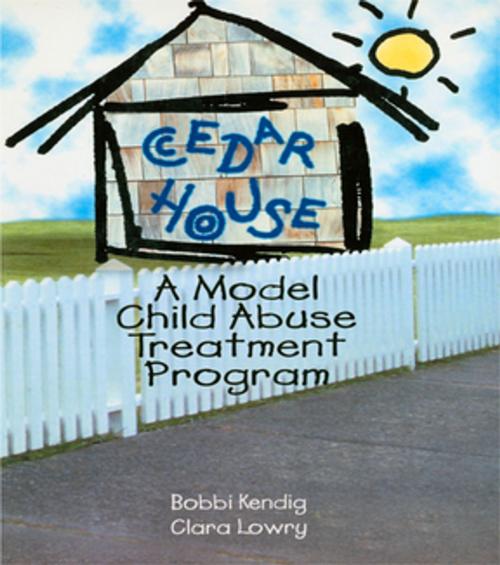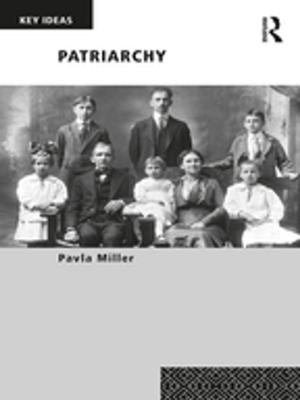Cedar House
A Model Child Abuse Treatment Program
Nonfiction, Family & Relationships, Family Relationships, Abuse, Health & Well Being, Psychology, Mental Health| Author: | Bobbi Kendig, Clara Lowry | ISBN: | 9781317791140 |
| Publisher: | Taylor and Francis | Publication: | November 12, 2013 |
| Imprint: | Routledge | Language: | English |
| Author: | Bobbi Kendig, Clara Lowry |
| ISBN: | 9781317791140 |
| Publisher: | Taylor and Francis |
| Publication: | November 12, 2013 |
| Imprint: | Routledge |
| Language: | English |
This inspiring book describes the treatment approach, the clientele, and the community networking of Cedar House, a pioneering and successful child abuse treatment program in Long Beach, California. Cedar House: A Model Child Abuse Treatment Program explains Cedar House’s hands-on treatment of families in which children have been abused. Each facet of the treatment process is explored and explained. The authors offer ideas on how the treatment they used can be adapted to your own treatment setting.
Cedar House: A Model Child Abuse Treatment Program gives practitioners hope, ideas, and support for hands-on work with multiproblem individuals and families, along with some pitfalls to avoid. Those treating clients who attempt to intimidate with bullying behavior or outbursts can gain understanding and more confidence to deal with others’anger. In addition, therapists and administrators will find ideas for the prevention of burnout.
The theme of the book springs from a mind-set of inclusiveness--including clients in every step of the process related to them, enlisting their abilities to help each other as well as themselves, embracing community members in the search for answers, and providing channels for people at all levels to give and to grow. You’ll gain new perspective on treatment efforts as Cedar House: A Model Child Abuse Treatment Program explores:
-
nine premises on which the Cedar House program is based
-
the use of staff volunteers as a team
-
actual client profiles and case studies
-
elements of the treatment approach at Cedar House
-
findings from two student research projects relating to the children of Cedar House
-
Cedar House’s relationship with the community
-
a contemporary evaluation of Cedar House and follow-up comments from former clients regarding their families 15--20 years after treatment
-
findings from a study of the dynamics of rage to better understand the breeding ground of violence and abuse
Cedar House: A Model Child Abuse Treatment Program dispels stereotypes and stresses the rewards of child abuse treatment and the joy found in sharing the journey as families find their footing and as children grow and develop. In 1979, Cedar House became the model treatment center for Los Angeles County’s Neighborhood Family Centers.
This inspiring book describes the treatment approach, the clientele, and the community networking of Cedar House, a pioneering and successful child abuse treatment program in Long Beach, California. Cedar House: A Model Child Abuse Treatment Program explains Cedar House’s hands-on treatment of families in which children have been abused. Each facet of the treatment process is explored and explained. The authors offer ideas on how the treatment they used can be adapted to your own treatment setting.
Cedar House: A Model Child Abuse Treatment Program gives practitioners hope, ideas, and support for hands-on work with multiproblem individuals and families, along with some pitfalls to avoid. Those treating clients who attempt to intimidate with bullying behavior or outbursts can gain understanding and more confidence to deal with others’anger. In addition, therapists and administrators will find ideas for the prevention of burnout.
The theme of the book springs from a mind-set of inclusiveness--including clients in every step of the process related to them, enlisting their abilities to help each other as well as themselves, embracing community members in the search for answers, and providing channels for people at all levels to give and to grow. You’ll gain new perspective on treatment efforts as Cedar House: A Model Child Abuse Treatment Program explores:
-
nine premises on which the Cedar House program is based
-
the use of staff volunteers as a team
-
actual client profiles and case studies
-
elements of the treatment approach at Cedar House
-
findings from two student research projects relating to the children of Cedar House
-
Cedar House’s relationship with the community
-
a contemporary evaluation of Cedar House and follow-up comments from former clients regarding their families 15--20 years after treatment
-
findings from a study of the dynamics of rage to better understand the breeding ground of violence and abuse
Cedar House: A Model Child Abuse Treatment Program dispels stereotypes and stresses the rewards of child abuse treatment and the joy found in sharing the journey as families find their footing and as children grow and develop. In 1979, Cedar House became the model treatment center for Los Angeles County’s Neighborhood Family Centers.















